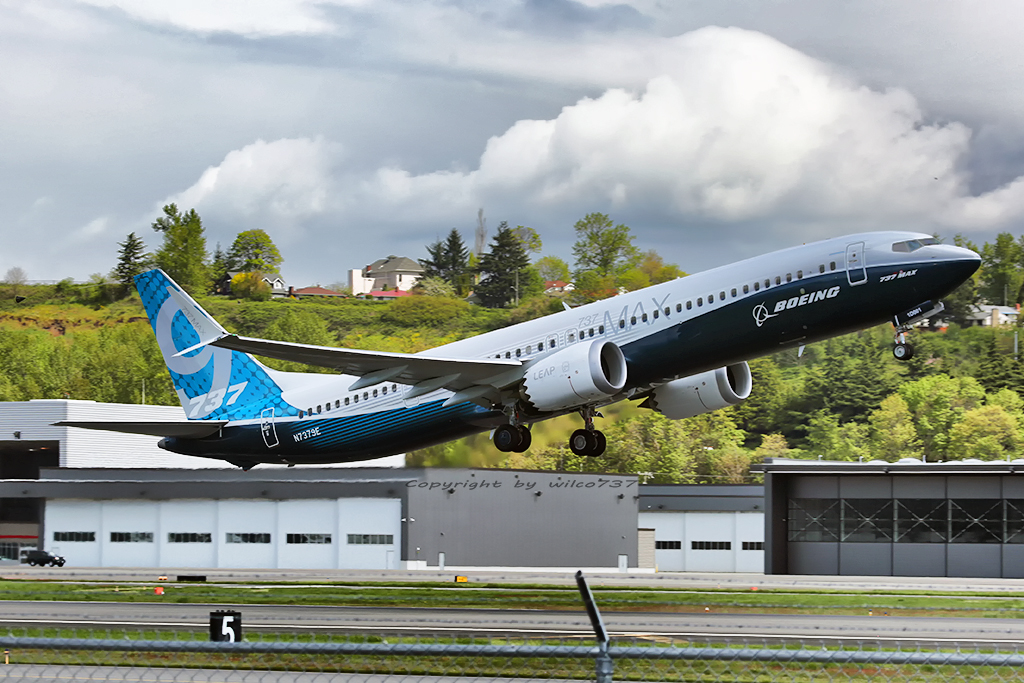In the high-stakes world of aviation manufacturing, precision and adherence to stringent quality standards are not just expected; they are demanded. However, recent findings from a Federal Aviation Administration (FAA) audit have cast a shadow over Boeing’s production practices, revealing a startling picture of noncompliance and makeshift solutions that could have serious implications for air safety.

The audit, which spanned six weeks, was initiated after a door panel blew off a 737 Max 9 during an Alaska Airlines flight in early January. The FAA’s deep dive into Boeing’s 737 MAX manufacturing processes at the Renton, Washington plant, and its key supplier, Spirit AeroSystems, has uncovered a series of quality control issues that are nothing short of alarming. According to a report, mechanics were found using unconventional tools such as a hotel key card and dish soap to perform tasks that should adhere to strict specifications.
The numbers speak volumes: Boeing failed 33 out of 89 product audits, with a total of 97 counts of alleged noncompliance. Spirit AeroSystems, responsible for the fuselage of the 737 MAX, did not fare much better, failing seven out of 13 product audits. These are not mere statistics; they are indicative of a potentially systemic problem within the manufacturing processes of one of the world’s leading aircraft producers.
One of the most eyebrow-raising findings was the use of a hotel key card to check a door seal, a procedure not documented in the production order. This improvisation is far from the precision engineering expected in aircraft manufacturing. Furthermore, the application of liquid soap as a makeshift lubricant, later wiped away with damp cheesecloth, is a far cry from the rigorous standards that the aviation industry and its passengers rely on.
In response to the audit’s findings, Boeing has been given a 90-day window to present a plan for corrective action. CEO Dave Calhoun has acknowledged the need for improvement, a sentiment that is echoed by Spirit AeroSystems as they commit to enhancing their safety and quality programs.
The FAA’s findings are not just a wake-up call for Boeing and its suppliers; they are a reminder of the critical importance of quality control in an industry where there is no room for error. As Boeing and Spirit AeroSystems work to address these issues, the aviation community and the flying public will be watching closely, expecting not just promises of improvement but tangible evidence that the skies remain safe.
The implications of these findings are far-reaching. They come at a time when Boeing is already grappling with a series of incidents that have shaken public confidence in the aerospace giant. From the tragic whistleblower case involving John Barnett to the love triangle that ended in murder-suicide, Boeing has been in the spotlight for all the wrong reasons.
While the investigation into Barnett’s death continues, with his legal team questioning the legitimacy of his death being a suicide, Boeing’s statement expressing sadness over his passing does little to quell the unease surrounding the company’s internal culture and practices.
The FAA’s audit is a stark reminder that in the pursuit of innovation and efficiency, the fundamentals of safety cannot be compromised. It is a call to action for Boeing and the entire aerospace industry to recommit to the values of precision, transparency, and unwavering quality that have long been the bedrock of air travel.
Related posts:
Boeing’s shocking personnel scandals: drugs, affairs, suicide
F.A.A. Audit of Boeing’s 737 Max Production Found Dozens of Issues
FAA Inspection Finds Boeing Mechanics Used Dish Soap, Hotel Key Cards As Makeshift Tools: REPORT





